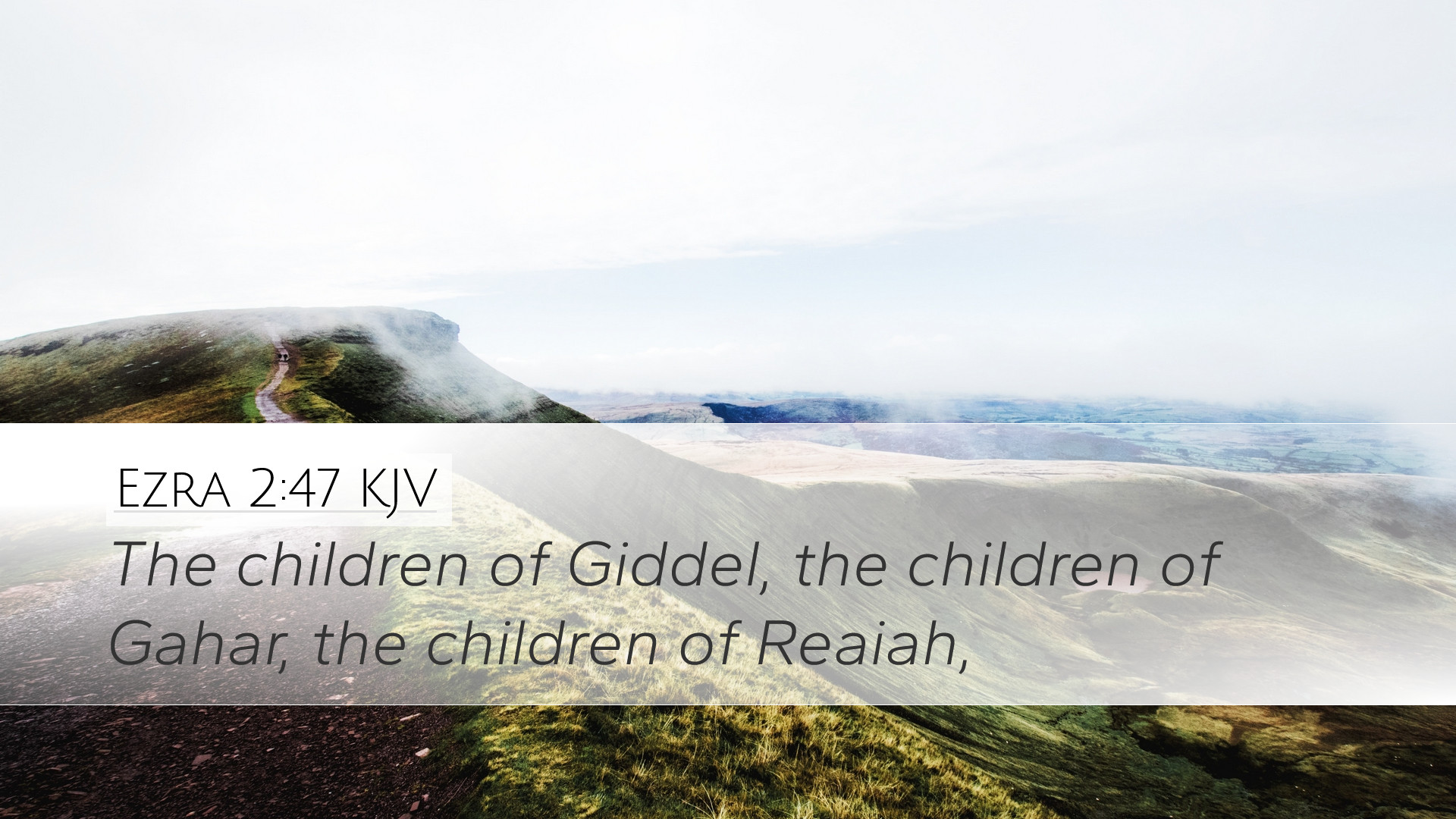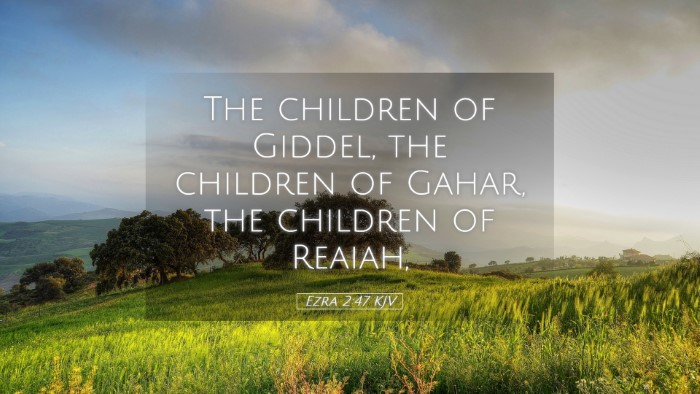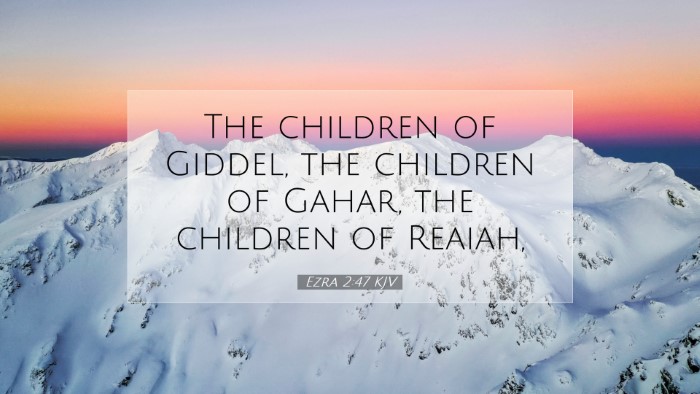Commentary on Ezra 2:47
Verse Overview: Ezra 2:47 states, "The children of the porters: the children of Shallum, the children of Ater, the children of Talmon, the children of Akkub, the children of Hatita, the children of Shobai." This verse enumerates the gatekeepers of the restored community in Jerusalem, highlighting their lineage and roles.
Historical Context
The book of Ezra presents a crucial period in Jewish history, marked by the return from Babylonian exile after seventy years. This restoration was orchestrated by God, who stirred the hearts of the Israelites and their leaders. Understanding the spiritual and social structures of post-exilic Judah is vital as we delve deeper into the specifics laid out in Ezra 2.
The Significance of Gatekeepers
Gatekeepers held an essential role in the ancient Israelite community. They were responsible for guarding the entrances to the temple and the city, serving both practical and spiritual functions. Their duty was not merely administrative; it carried profound theological implications, reflecting God's order and protection over His people.
- Matthew Henry:
Henry observes that those who were assigned to the gates served a vital role in maintaining the sanctity of worship. The gatekeepers were intermediaries, ensuring that those who approached God's presence were reverent and prepared.
- Albert Barnes:
Barnes emphasizes the significance of names listed in scripture, noting that the inclusion of the gatekeepers underscores their importance in the worship process. He points out that while their roles may seem menial, they were vital to the functioning of the temple.
- Adam Clarke:
Clarke adds that the organizational structure of the post-exilic community included this careful appointment of porters, which was essential in facilitating order during religious observances. He draws attention to their dedication toward maintaining the temple's integrity.
Theological Reflections
At its core, this verse reveals God's design for order and structure within His people. It invites a meditation on how each individual's role contributes to the whole. The nature of the gatekeepers symbolizes broader themes of access and holiness in worship.
- Access and Holiness:
The gate symbolizes access to divine presence, and the gatekeepers represent the holiness that must be observed while approaching God. This connection prompts readers to consider modern expressions of worship and how we prepare ourselves to enter 'the gates' with thanksgiving and praise.
- Community and Role:
The various families of gatekeepers remind us that each member of the body of Christ has a unique role to play. Reflection on this diversity encourages individuals to embrace their spiritual gifts and callings, fostering unity in Christ.
- Legacy of Service:
The legacy of the gatekeepers extends into the New Testament, where Jesus metaphorically identifies Himself as the gate. This connection invites deeper contemplation on who holds the keys to God's kingdom and how we serve in our capacity.
Practical Applications for Today
As we navigate modern church life, the principles drawn from Ezra 2:47 can inform our structure and community dynamics.
- Emphasizing Roles:
Recognizing the importance of every role in church life, whether visible or hidden, fosters a culture of respect and appreciation among congregants.
- Guarding the Gates:
The Church today is called to be vigilant over what enters its gates—doctrinally, morally, and spiritually. The duty of the gatekeepers can inspire contemporary leaders to protect their flocks against false teachings.
- Encouraging Accessibility:
While the gatekeepers provided necessary barriers, they also facilitated access to God. Similarly, modern churches should strive for a balance between holiness and approachability, welcoming seekers into a genuine encounter with the Gospel.
Conclusion
In reflection, Ezra 2:47 serves as a powerful reminder of God's order within His structure of worship and community. The position of gatekeepers embodies vital spiritual truths that speak to both historical contexts and contemporary application. As we embrace our roles within the body of Christ, let us honor the legacy of those who came before us and ensure that our worship is conducted in a manner that befits the holiness of our God.


